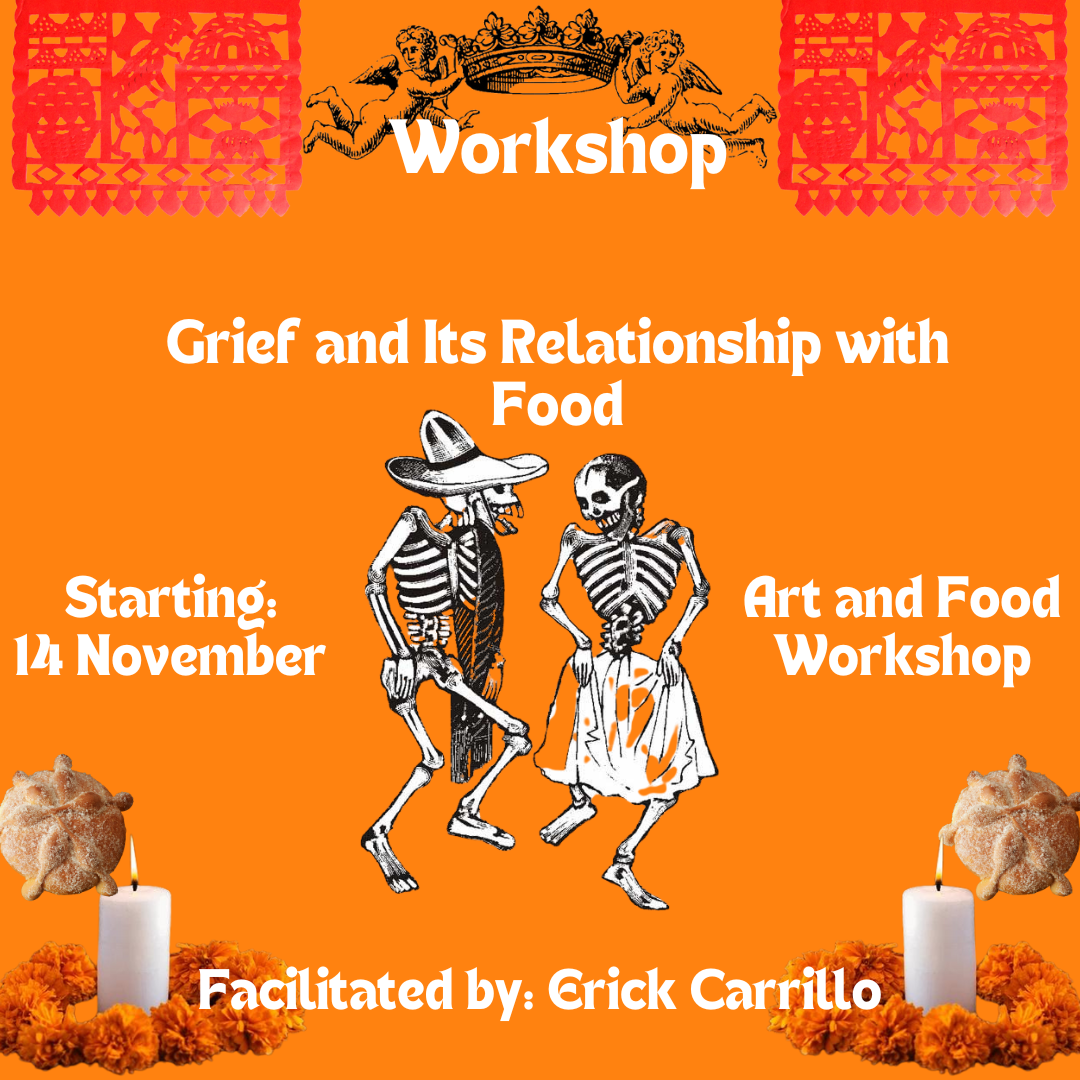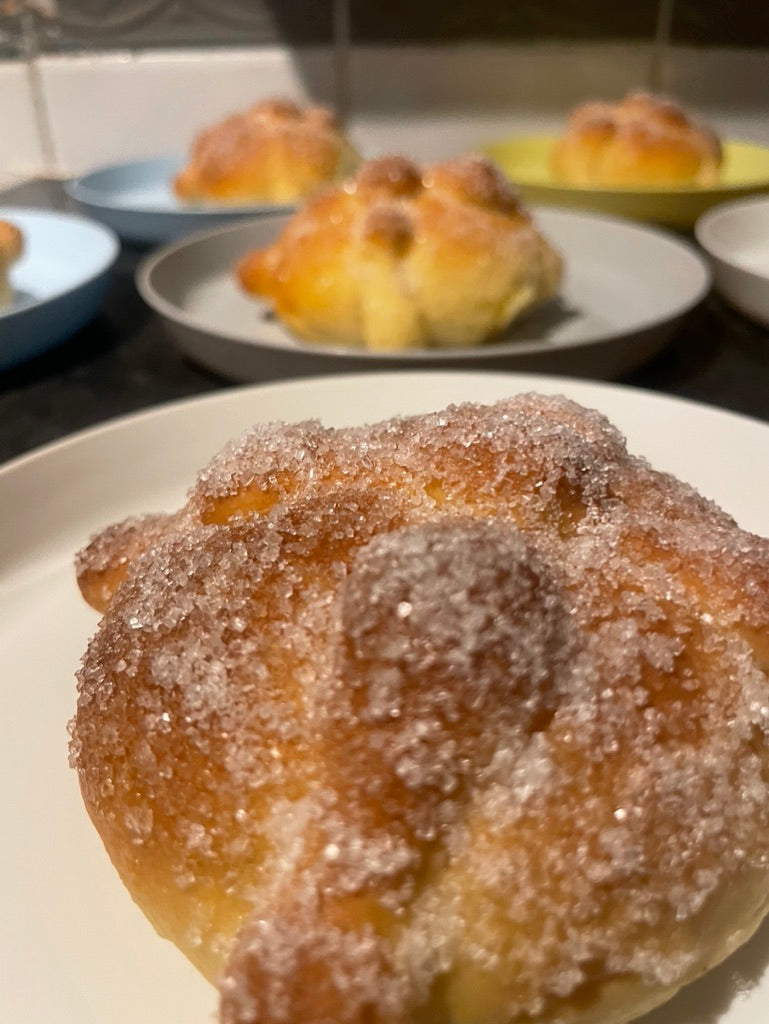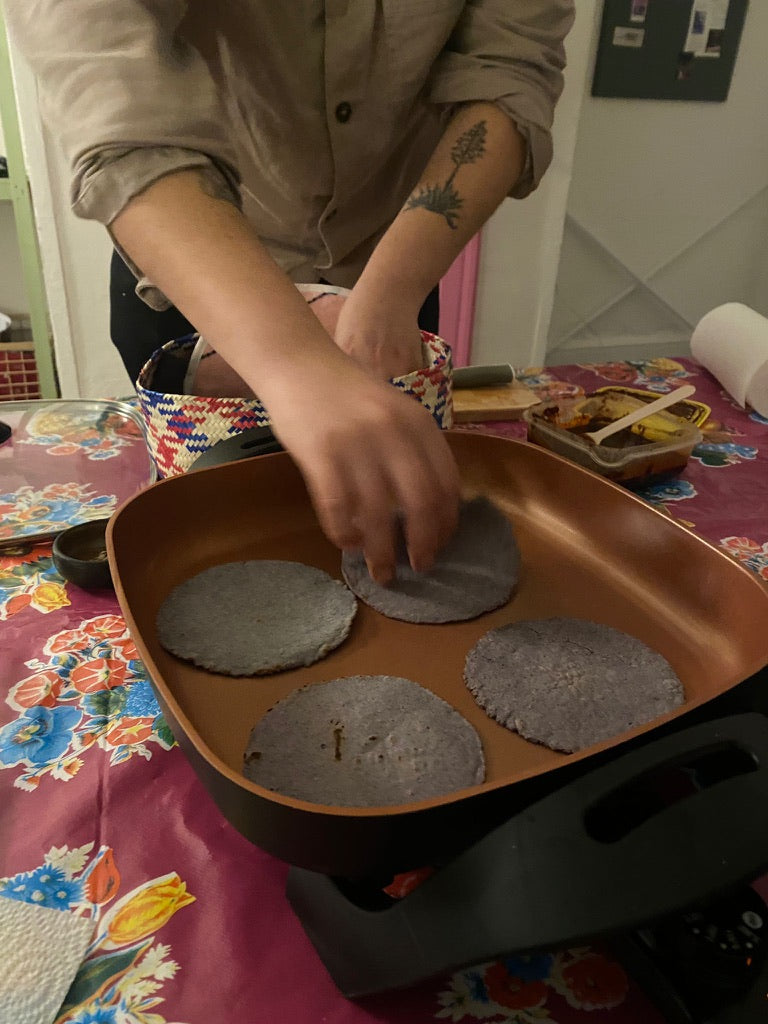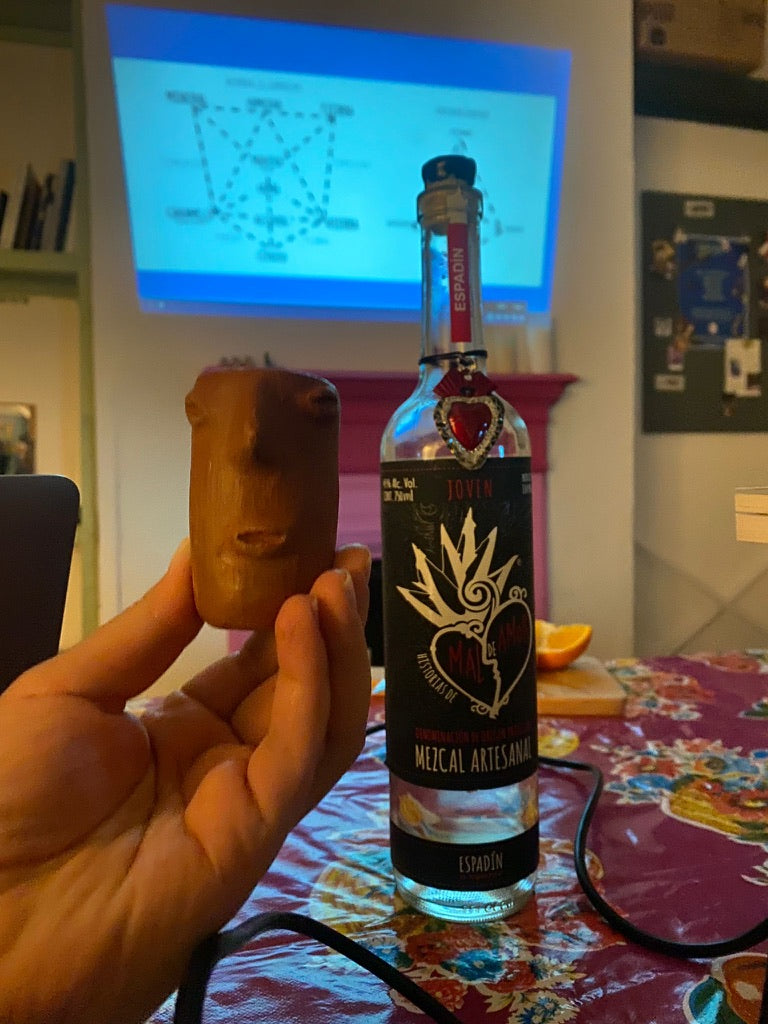1
/
of
4
Grief and Its Relationship with Food
Grief and Its Relationship with Food
Regular price
€60,00 EUR
Regular price
Sale price
€60,00 EUR
Unit price
/
per
Taxes included.
Couldn't load pickup availability
So what's it going to be about?
This four-session workshop explores the connection between grief and Mexican food, blending theoretical discussions with practical, sensory experiences. Each session explores into different perspectives on grief (psychoanalysis, anthropology, sociology, and rituals) and connects these with traditional Mexican dishes and beverages.
In each session:
Session 1: Grief in Psychoanalysis and Fideo Soup
Objective: Explore grief from a psychoanalytic perspective, linking it to a simple yet comforting dish like fideo soup.
-
Theory:
- Introduction to grief in psychoanalysis, focusing on Freud’s concept of "Grief and Melancholia."
- The connection between comforting food and grief: how food can act as a source of emotional comfort and support during grief.
-
Link to Mexican Food:
-
- Fideo Soup with Tortillas: We will try mexican fideo soup, a dish often associated with family warmth and comfort. This meal can symbolize emotional care during times of sadness.
-
Session 2: Grief in Anthropology and Pan de Muerto
Objective: Approach grief from an anthropological perspective, connecting it with Mexican traditions like altars and Pan de Muerto.
-
Theory:
- Anthropological view of grief: how different cultures have ritualized death and grief.
- The significance of altars and Día de los Muertos in Mexico, where food plays a crucial role in honoring the dead.
- The symbolism of Pan de Muerto: its history, meaning, and role in altars.
-
Practical Activity:
-
Link to Mexican Food:
-
Pan de Muerto: We will try Pan de Muerto to share with the group.
-
Pan de Muerto: We will try Pan de Muerto to share with the group.
-
Link to Mexican Food:
Session 3: Grief in Sociology and Mole
Objective: Analyze grief from a sociological perspective, exploring how food—particularly mole—plays a symbolic and communal role in the mourning process.
-
Theory:
- Grief as a social phenomenon: how communities and families manage collective loss.
- Mexican funeral traditions that involve food as a way of gathering people and offering emotional support.
- The significance of mole: a dish rich in history, often served during both celebratory and mourning events, representing a complex mix of emotions.
-
Practical Activity:
-
Link to Mexican Food:
-
Mole: We will try Oaxacan mole to share with the group. While tasting the dish, participants can reflect on its complex flavors and ingredients, symbolizing the multifaceted emotions involved in grief.
-
Mole: We will try Oaxacan mole to share with the group. While tasting the dish, participants can reflect on its complex flavors and ingredients, symbolizing the multifaceted emotions involved in grief.
-
Link to Mexican Food:
Session 4: Grief, Rituals, and Mezcal
Objective: Explore the rituals associated with grief and how mezcal, as a symbolic beverage, reflects both life and death in Mexican culture.
-
Theory:
- The role of rituals in the grieving process: from small, personal gestures to more formal ceremonies that help bring closure.
- The symbolic significance of mezcal: a drink connected to the land, life, and death.
- Mezcal in Mexican rituals: its use in ceremonies and its importance in honoring the dead or marking significant life moments.
-
Practical Activity:
-
Link to Mexican Beverage:
-
Mezcal: Share mezcal in a ritualized setting, explaining the importance of "toasting" as a symbolic act to honor the memory of loved ones.
-
Mezcal: Share mezcal in a ritualized setting, explaining the importance of "toasting" as a symbolic act to honor the memory of loved ones.
-
Link to Mexican Beverage:
Starting: 16 November / 6:30PM to 8:15PM
Duration:
4 weeks (During 4 Thursdays : 6November /13 November /20 November /27 November.
Time: 6:30 PM To 8:15PM
Cost: 50 euros for all the workshop (4 sessions. Including the food provided in each session.)
Sessions In Person
Location: 14 Exchequer St 2th floor, Dublin 2
Taught by: Erick Gustavo Carrillo Ortiz
Erick studied a Bachelor's degree in Psychology and a Master's in Psychoanalytic Psychotherapy at Centro Eleia in Mexico. For six years, he dedicated himself to clinical psychotherapy and teaching. He also co-founded the magazine Inverosímil, where he collaborated with emerging artists to create hybrid articles focused on everyday experiences. Additionally, he coordinated art and literature workshops at Invernadëro, where he also led workshops on topics such as "art and psychoanalysis," "Walking to get Lost," "Art and Aesthetics," among others.
He currently resides in Ireland, where he completed a Master's in Visual and Critical Studies at TU Dublin, writing a dissertation on the representation of the microbus and its relationship with New Spanish Baroque churches. He is also a co-founder of the cultural project Fondita Mestiza, which merges art, gastronomic experiences, and critical thinking.








